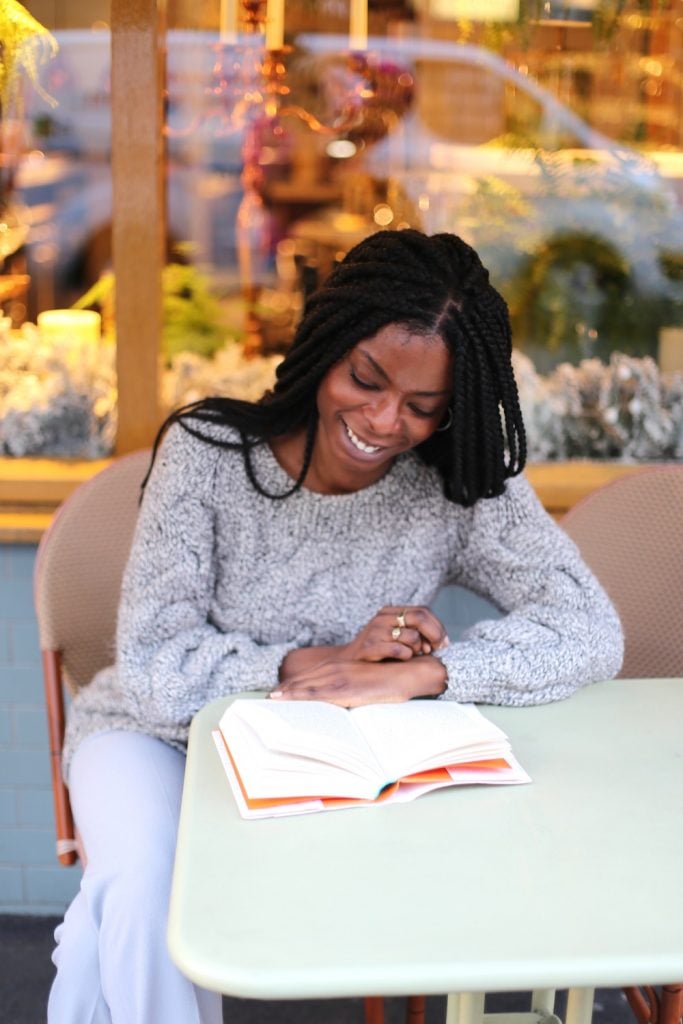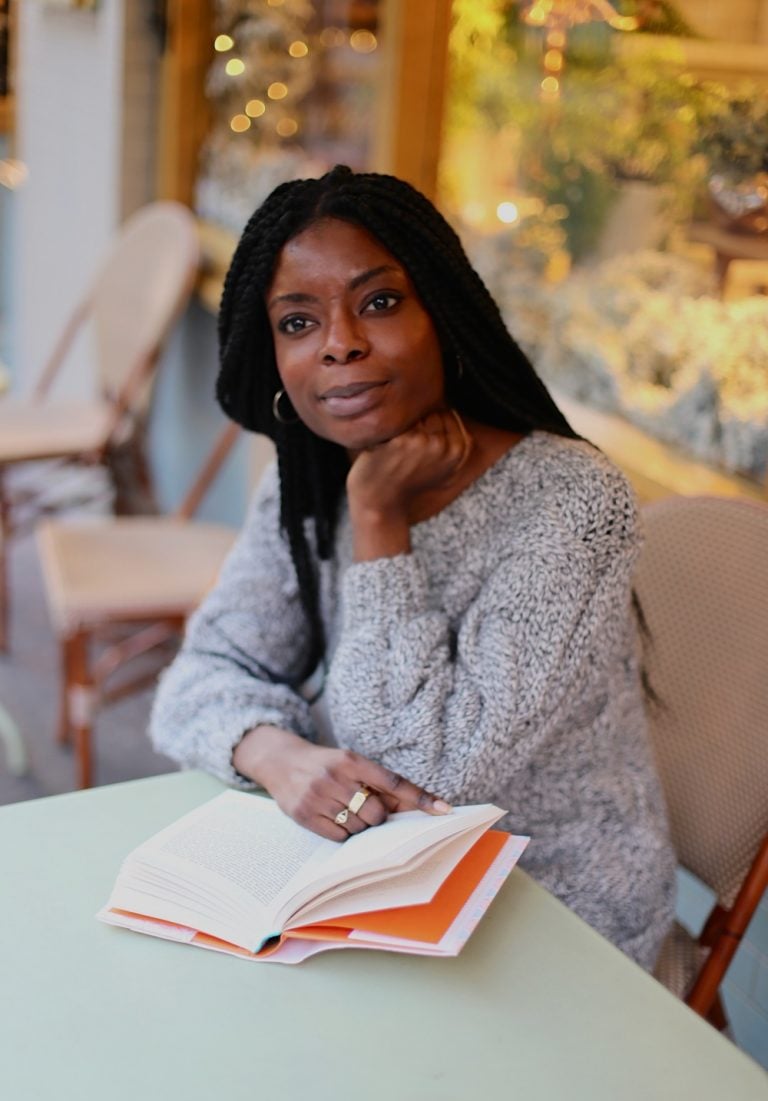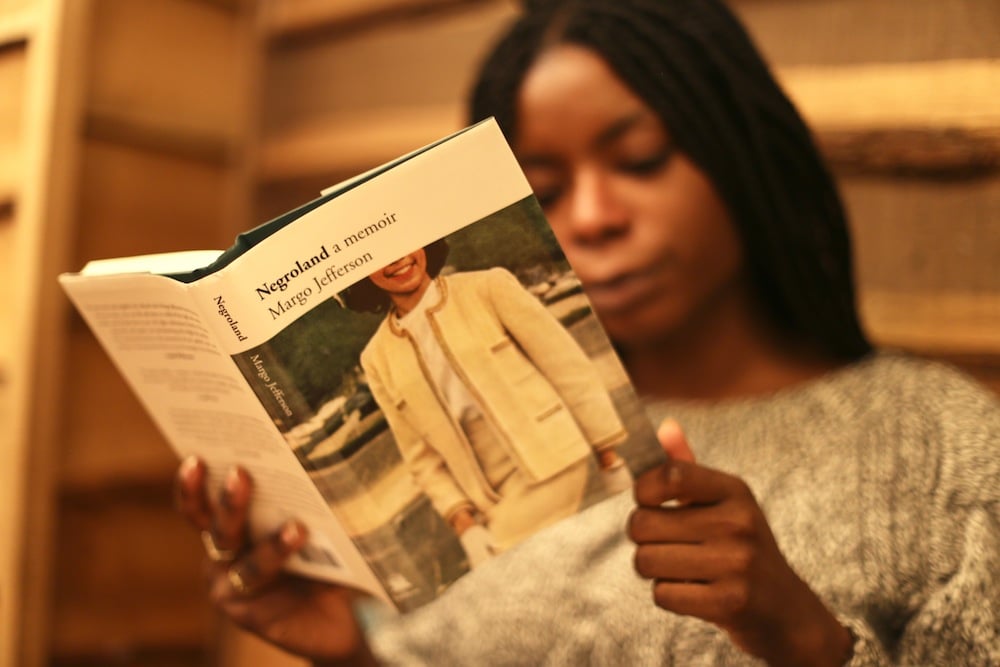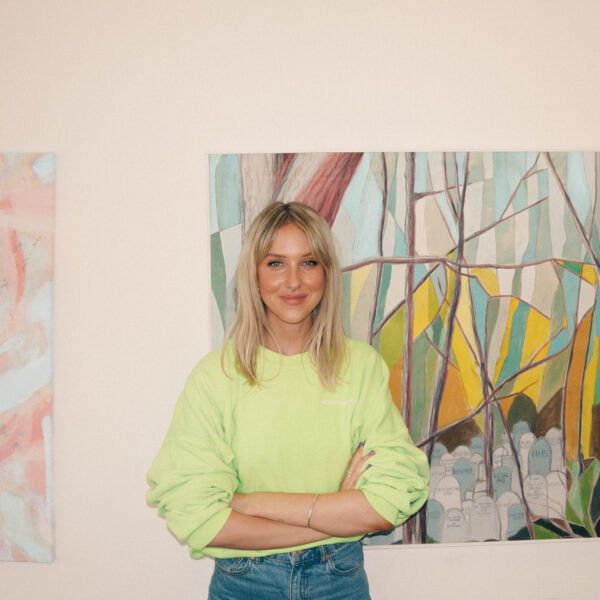
Natasha Collie
Senior Brand Marketing Manager at Penguin Random House UK
At the start of the year, Ladybird Books approached Sonder & Tell with a dream brief. In 2021, a year that’s been particularly challenging for...
In conversation with
Author The Little Black Book, founder Women Who

Chances are you’ve seen The Little Black Book by Otegha Uwagba on Instagram, at Waterstones checkouts, or on Amazon – where it hasn’t left the top 1,000 since it was published last June. Pocket-sized, millennial-pink and filled with practical tips, it’s the career book that every woman should carry in their handbag – less #GirlBoss and more #HowtoNegotiateaPayRiseOnTheSpot. The author is Otegha Uwagba, writer and founder of Women Who, a community for working women with events that link them up. Having worked in both advertising (BBDO) and branded content (Vice Media) Otegha now has her own book, blog, newsletter, podcast, events programme and freelance writing career (we love this one for Man Repeller). We’d say she’s something of a content queen.
I think brands easily forget that their content needs to add value to their consumers. Brands often just try and push their product and put it at the centre of their strategy, which a lot of the time isn’t interesting. You have to produce content which has value in and of itself. People are so resistant to advertising nowadays. If you can create content that improves people’s lives or is interesting – that they can talk about over drinks with their friends – then you’re winning.
I really like Jia Tolentino who writes for The New Yorker. She does cultural commentary. She wrote a really great piece about how empowerment has become another marketing tool. I also really like Naomi Fry who writes for the New York Times. She’s the epitome of that New York Times-style cultural commentary. Smart, incisive but also accessible.
I really value journalism that’s accessible. I say this as a fairly well-educated person – I don’t think journalism should be written in a way that will put the average person off reading it, like having a million references for example. Sometimes I read stuff which is way too dense; it bores me even when I’m actively interested in the subject. We’re in a very time poor society. I want to read and digest things quickly.

I really like Roxane Gay (of the Bad Feminist) who writes mostly on feminism and sometimes race, gender and politics. She’s really good at marrying the personal and political. Personal essays are currently really popular, but the best ones make a wider point beyond your own experience.
I didn’t and still don’t read career books. I haven’t read Lean In and I haven’t read Girl Boss. I think generally, career books are filled with clichés that aren’t applicable to the majority of people’s lives. They are often full of very circumstantial advice or narrative. When I was writing my own book, the first draft was in the first person and then I rewrote it. Who really gives a shit? You came for advice, so why don’t I cut out all the extraneous stuff and give you the distilled goodness.


It’s 11 chapters so I think of it as 11 internet essays. I felt like I was battling with an environment where people have short attention spans. I knew that really digestible information would be more successful and ultimately more useful. So many people tell me that they read it on their commute.
It’s very much about honesty. There’s a tendency to have a #girlboss attitude to self-employment and careers. It’s all very #bossy but they don’t really talk about the hard work, pressure or stress that goes into it. I feel a responsibility to be honest now I have a platform where a lot of people listen to what I say about careers. The other thing is inclusivity – making people feel that they can they can be part of the platform and can slide into my DMs and I’ll respond is really important to me.
“Making people feel that they can be part of the platform and can slide into my DMs and I’ll respond is really important to me”
The reason I started the podcast was because it’s a medium that allows for conversation. I had interesting conversations with women all the time but I felt like so much of them got lost and didn’t go anywhere. I thought if they were parlayed on a wider platform, people could learn a lot from them.
Another Round, which is a BuzzFeed podcast with two hosts called Heben and Tracy. It’s all about pop culture and race. It’s half comedy and half serious race chat and it works really well. Call your Girlfriend is another one I like. Dear Sugar by Cheryl Strayed – an agony aunt podcast dealing with people’s issues. It’s addictive and highly therapeutic. I can’t relate to 99% of it but there’s something so interesting about it. On the career side I really like Sophia Amoruso’s podcast Girlboss.

There are different mediums for different messages I want to deliver. The newsletter started because I felt like I read so much online and wanted a place to share it. It’s really nice seeing what people respond to and it’s a way to measure what working women are feeling. Often the things that get a huge number of clicks are not the career related ones. I posted one the other day on Man Repeller about being single – How to Know if you’re Settling – which got a record number of clicks. A lot of thought goes into that newsletter. I probably spend three quarters of a day on it. Once you have built up that trust with people, you have to provide really good content.

Negroland is a memoir by Margo Jefferson about growing up as a middle class black girl and teenager in 1960s Chicago. It’s a point of view I’d never read before. It’s not the usual narrative about growing up poor. She grew up upper middle class – her mum was a socialite and her dad was the head of paediatrics at a hospital. She calls it the coloured aristocracy. It’s about the advantages that that afforded her but also the ways in which she was just as limited by being black.
One Hundred Years of Solitude is my favourite book in the world. I first read it when I was 15. People either love this book or hate it. A lot of people think it’s really slow and boring but I think it has the most beautiful, lyrical language. It was the first book that introduced me to Latin American magical realist writers. It’s such a cheesy thing to say but I remember reading it and just wishing it wouldn’t end.


Senior Brand Marketing Manager at Penguin Random House UK
At the start of the year, Ladybird Books approached Sonder & Tell with a dream brief. In 2021, a year that’s been particularly challenging for...

Founder Of Simple Politics
Talking about serious issues doesn’t mean defaulting into a serious tone of voice, or using complicated language. If anything, accessibility, clarity and a touch of...

Brand & Community Manager at Homethings
Creating a tone of voice from scratch can be challenging. But a blank slate to work from also mean there’s room for something a bit...

Travel Editor Surface Magazine

Journalist, author Everything I know About Love, podcast host The High Low